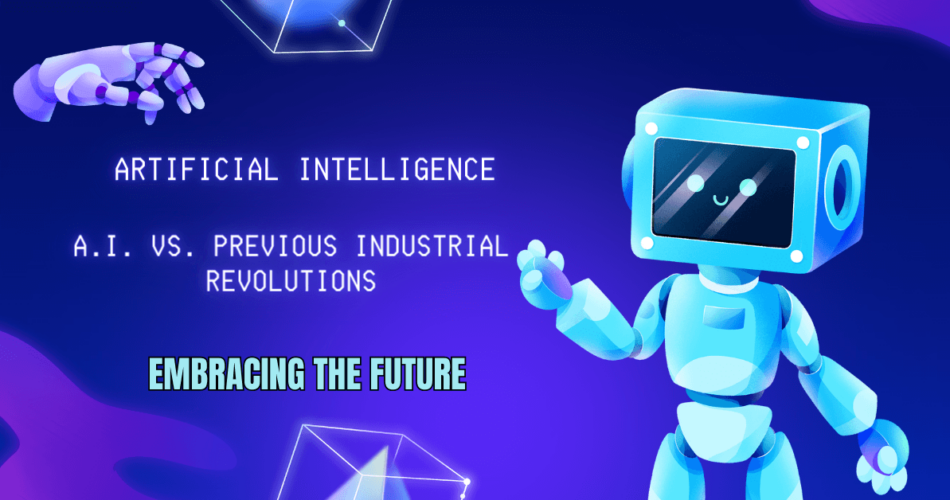In the ever-evolving landscape of technology, one phenomenon stands out: artificial intelligence (AI). But is it merely a passing trend, or does it signify something more profound? According to Dan Ives, an analyst from Wedbush Securities, AI is not all hype; it’s the “fourth industrial revolution” playing out before our eyes.
Table of Contents
The Fourth Industrial Revolution
We’ve witnessed three major industrial revolutions in history—the advent of steam power, electricity, and the internet. Now, we find ourselves at the cusp of the fourth. This revolution encompasses not only AI but also robotics, autonomous vehicles, and the Internet of Things (IoT). These technologies are reshaping industries, economies, and societies.
The AI Impact
Here’s why AI matters:
- Trillion-Dollar Spending: Ives predicts trillion-dollar incremental spending on AI over the next decade. Companies across sectors are investing heavily in AI research, development, and implementation.
- Nvidia’s Success: The recent success of Nvidia, a chip maker powering AI technologies, underscores the transformative potential of AI Their GPUs (graphics processing units) are at the heart of machine learning and deep learning applications.
- Beyond the Hype: AI isn’t just a buzzword; it’s a fundamental shift. It will impact everything—from healthcare and finance to transportation and entertainment—for the next 20-30 years.

The Future Unfolds
As we embrace this revolution, we must prepare for a world where AI algorithms drive decisions, where robots collaborate with humans, and where data becomes the new currency. The challenges are immense, but so are the opportunities.
So, next time you hear about AI, remember—it’s not just hype. It’s the fourth industrial revolution playing out, and we’re all part of it.
A.I. vs. Previous Industrial Revolutions
Pace of Evolution:
Previous Revolutions: The first three industrial revolutions (steam power, electricity, and digitalization) evolved linearly over time.
Fourth Industrial Revolution: AI is evolving exponentially. It disrupts almost every industry globally, heralding profound changes in production, management, and governance.
Scope of Disruption:
Previous Revolutions: Each revolution impacted specific sectors (e.g., manufacturing, transportation).
Fourth Industrial Revolution: 4IR transcends industry boundaries. It affects everything—healthcare, finance, education, and more.
Technological Foundations:
Previous Revolutions: Built on specific technologies (e.g., steam engines, electricity grids, computers).
Fourth Industrial Revolution: AI is the cornerstone. It combines connectivity, data analytics, computational power, and human-machine interaction.
Human Skills Transformation:
Upskilling: Employees learn new skills to adapt to evolving job requirements.
Reskilling: Workers are retrained for different roles within companies.
Balance: Geographically, opinions on hiring vs. reskilling vary. Europe emphasizes reskilling, while the U.S.leans toward hiring2.
Embracing the Future
The Fourth Industrial Revolution isn’t just about technology; it’s about people. Companies must equip their workforce through upskilling and reskilling. The transformation has three phases: scouting skills, addressing talent gaps, and designing programs. In summary, AI and the Fourth Industrial Revolution redefine our world. They demand adaptability, creativity, and a holistic approach to skill development. 🌟🤖🚀
Let’s explore some frequently asked questions (FAQs)
What is the Fourth Industrial Revolution?
How does AI fit into the 4IR?
Why is AI crucial for the 4IR?
What distinguishes the 4IR from previous industrial revolutions?
How can companies prepare for the 4IR?
-
- Upskill and reskill their workforce.
- Innovate, accelerate, or follow fast to stay competitive.
- Embrace AI as a conductor for 4IR technologies.
Remember, the 4IR is reshaping our world. Stay curious, adapt, and be part of this transformative journey! 🌟🤖🚀
Read More Articles
Smart Jewelry: The Fusion of Style and Technology
how to reset airpods
Which statement describes data-sharing in a blockchain
The Next Big Thing in Investing: How Hive Blockchain Stocktwits Are Changing the Game

